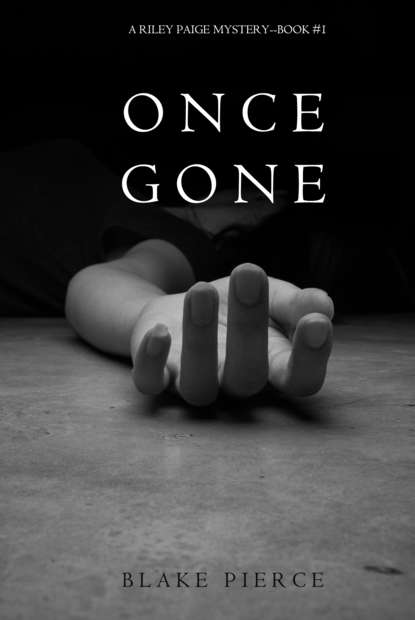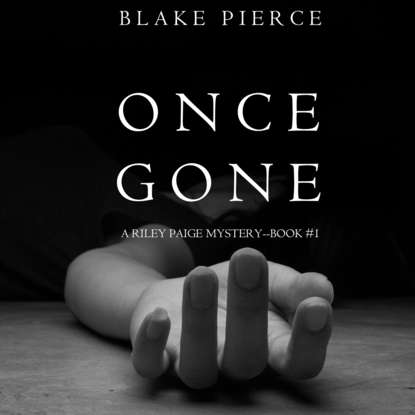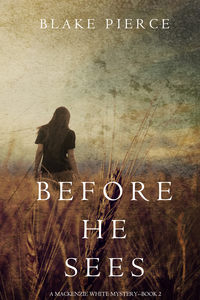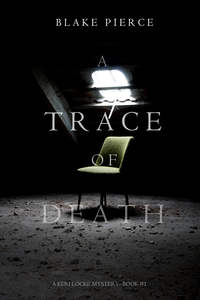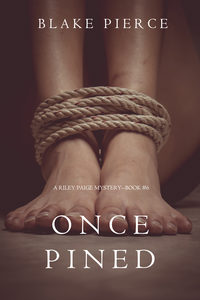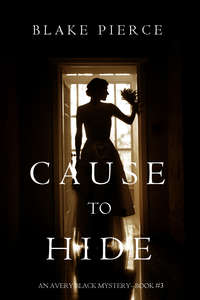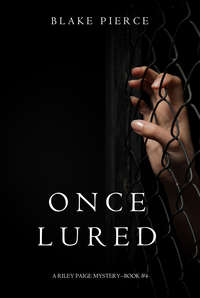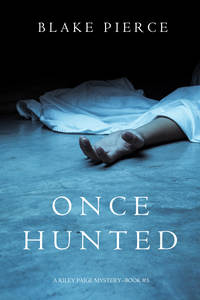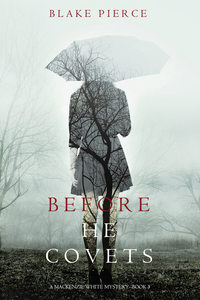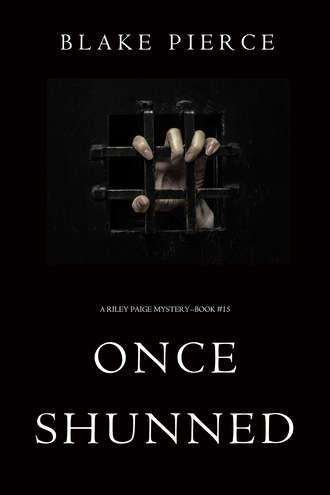
Полная версия
Once Shunned
She said to Brennan, “I assume you’ve interviewed all the neighbors.”
“As many of them as we could,” Brennan said. “Nobody was awake when it happened, so nobody noticed anything unusual.”
She could see cameras on some of the front porches. In several yards, signs warned that these houses were protected by one or another security company.
“I see that some neighbors have security cameras for their own houses,” Riley commented.
“Most of them do, I’m sure,” Brennan said with a shrug. “But it doesn’t look like any of them are going to do us any good.”
Riley could see what Brennan meant. None of the cameras appeared to be directed toward Robin’s house, so they couldn’t have picked up anything concerning the break-in or the murder. And yet a Nest camera fastened to a porch post of the nearest house caught her interest.
Riley pointed to the house and said, “Have you talked to the people who live there?”
Brennan shook his head. “No, a retired couple named Copeland live there, but they haven’t been at home for a week or so. The neighbors say they’re vacationing in Europe. They’re supposed to come back in a couple of weeks. So they definitely couldn’t have seen what happened. And their camera isn’t aimed at Robin’s house either.”
Not at the house, Riley thought. But definitely at the street in front of the house.
And what had happened on the street was exactly what Riley was curious about right now. Because the couple was gone for an extended time, maybe they’d left the surveillance system programmed to keep a continuous record of all that happened in their absence.
Riley said, “I want to see what, if anything, that camera picked up.”
Agent Sturman replied, “We’ll have to track down the Copelands and get their permission. To see the recording we’ll need their password. Or we’ll have to get a warrant and go after it through the company.”
“Do it,” Riley said. “Whatever we need. As quickly as you can.”
Sturman nodded and stepped aside, taking out his cell phone to make a call.
Meanwhile, before Riley could decide what she and her colleagues should do next, Jenn spoke to Chief Brennan.
“You said Robin was divorced. What can you tell us about her ex?”
Brennan said, “His name’s Duane Scoville, and he plays in a local rock band called the Epithets.” The chief laughed a little and added, “I’ve heard them play. They’re not bad, but it seems to me they’d better keep their day jobs.”
Jenn asked, “Where does Duane live?”
Brennan pointed. “Just over on the east side of town.”
Jenn said, “I take it you’ve interviewed him.”
“Yeah, we don’t think he’s a viable suspect,” Brennan said.
“Why not?” Jenn asked.
“Duane says he and the Epithets were playing a gig over in Crestone, Rhode Island, the night of Robin’s murder. He says he and the band stayed the night, and he showed us a motel receipt. We don’t have any reason not to believe him.”
Riley saw that Jenn looked doubtful.
And with good reason, Riley thought.
It didn’t sound like the local police had done a very thorough job of interviewing Duane Scoville, let alone eliminating him as a suspect. And even if Duane wasn’t the murderer, he still might have important information to offer.
Jenn said, “I’d like to talk to him some more.”
“OK, I’ll give him a call,” Brennan said, reaching for his cell phone.
“No, I’d rather not give him advance notice,” Jenn said.
Riley knew that Jenn was right. If there was even the slightest chance that Duane was their killer, it was best to try to catch him off guard.
Riley said to Brennan, “Could you drive us to where he lives, see if we can find him at home?”
“Certainly,” Brennan said.
Agent Sturman ended his phone call and rejoined them. “I’ve got an agent tracking down the Copelands,” he said. “But I’ve got another case in progress, and I need to get back to headquarters.”
“You’ll let us know as soon as you get anything?” Bill asked.
“Absolutely,” Sturman promised, and strode off toward his van.
Chief Brennan said, “My vehicle is over here. I can take you to Duane Scoville’s place.”
As Riley and her colleagues climbed into Brennan’s police car, Riley noticed the determined expression on Jenn Roston’s face. It felt good for Riley to see her young protégé looking so engaged. Riley glanced at Bill and could tell that he felt the same way.
She’s really turning out to be a hell of an agent, Riley thought.
And the three of them together were becoming a remarkable team.
She decided she and Bill should let Jenn take the lead in interviewing Duane Scoville. It might give her a chance to shine, Riley figured.
And she definitely deserves that.
*During the short drive across town, Jenn Roston found herself remembering Riley’s actions back at Robin Scoville’s house, and the conclusion she’d drawn about the killer …
“He’s one cold son of a bitch.”
Jenn didn’t doubt that Riley was right. She’d seen Riley get into a killer’s mind a number of times now, but it never ceased to amaze her.
How does she do it?
No one in the BAU seemed to know, except maybe for Riley’s one-time mentor, a retired agent named Jake Crivaro who now lived in Florida. Riley herself didn’t seem to be able to explain the process or even what it felt like.
It seemed to be nothing more or less than pure gut instinct.
Jenn couldn’t help but envy Riley for that.
Of course, Jenn had her own share of strengths. She was smart, resourceful, tough, ambitious …
And nothing if not self-confident, she thought with a smile.
Right now she was pleased that Riley had agreed with her about the need to interview Duane Scoville. Jenn felt anxious to make meaningful contributions to solving this case. She regretted some of her own behavior during the previous case she’d worked on with Riley and Bill—the case of the so-called “Carpenter,” who’d killed his victims with a swift hammer blow to the head.
A bitter remark Jenn had made in response to Riley’s criticism kept echoing through her mind …
“I suppose this is where you accuse me of not being objective.”
It had been a cheap shot—especially since Jenn knew perfectly well that Riley had had good reason to doubt her objectivity. As an African-American agent, Jenn had been on the receiving end of some pretty overt racism while they’d been working in Mississippi. She hadn’t taken it well, and she had to admit it had affected her judgment.
She hoped she could make up for all that now.
She hoped she could make up for a lot of things.
She looked forward to a day when, at long last, she could put her troubled past behind her.
As Chief Brennan drove, darker memories began to crowd into Jenn’s mind—the dysfunctional parents who’d abandoned her when she’d been a child, then her years under the care of a brilliant but sinister foster parent who called herself “Aunt Cora.” Aunt Cora had trained Jenn and her other foster children to become master criminals in her own criminal network.
Jenn had been alone among Aunt Cora’s pupils in escaping from her clutches, hoping to make a different and better life for herself. She’d become a decorated cop in Los Angeles, then had made phenomenal scores at the FBI Academy before becoming a full-fledged BAU agent.
Even so, she hadn’t been able shake off Aunt Cora completely. The woman had been in touch with her earlier this year, trying to pull her back into her sphere of influence, even trying to make Jenn beholden to her by helping out on an FBI case.
Jenn hadn’t heard anything from Aunt Cora for a few weeks now. Had her one-time mentor given up on her for good?
Jenn could only dare to hope.
Meanwhile, Jenn’s gratitude toward Riley knew no bounds. Riley was the only person who knew the truth about Jenn’s past. More than that, Riley sympathized. After all, Riley herself had once been entangled with a criminal mastermind, the brilliant escaped convict Shane Hatcher.
Jenn knew more than anybody else did about Riley’s secret, just as Riley knew all about hers. It was one of the reasons Jenn felt such a close bond with her new mentor—a bond based on mutual understanding and respect. Because of that bond, Jenn wanted to live up to Riley’s high expectations of her.
Jenn’s thoughts were interrupted by the sound of Brennan’s voice as he turned a corner.
“We’re almost there.”
Jenn was surprised to see a huge change in the surrounding community. Gone were all the dignified, gleaming white houses with their flawlessly straight picket fences. They passed down a street littered with modest-sized businesses that included vegan restaurants, organic food stores, and a thrift store.
Then they continued into a neighborhood filled with smaller houses, somewhat shabby but nevertheless rather charming. Pedestrians were a varied lot, from young bohemian types of diverse races to old hippie types who looked like they’d lived here since the sixties.
Jenn felt immediately more comfortable here than she had in the homogenized, ultra-white, upper-class area they’d just left. Still, this was a small neighborhood, and Jenn guessed that it was getting rapidly smaller.
Gentrification is closing in, she thought a bit sadly.
Brennan parked in front an old brick apartment building. He led Jenn and her colleagues up to the front door. There, Riley gave Jenn a look that told her she was to take the lead now.
Jenn glanced at Bill, who nodded at her to go ahead.
She gulped with anticipation, then rang the buzzer for Duane Scoville’s apartment.
No one answered at first. Jenn wondered if maybe he wasn’t home. Then she rang again and heard a grumbling voice over the speaker.
“Who is it?”
The voice crackled for only a couple of seconds. But Jenn thought she heard music in the background.
Jenn called back, “We’re from the FBI. We’d like to talk to you.”
“What about?”
Jenn felt a bit taken aback by the question. And this time she was sure she heard music.
She said, “Um … about your ex-wife’s murder.”
“I talked to the cops about that already. I was out of town when it happened.”
There was another snippet of music, and this time it sounded familiar to Jenn—almost eerily so.
Brennan interjected, “This is Police Chief Brennan. I talked with you earlier. The agents would still like to ask a few more questions.”
A silence fell, then the buzzer rang and the door clicked. Jenn opened the door and she and her colleagues walked inside.
She thought …
It doesn’t sound like we’re exactly welcome.
Jenn wondered why not.
She decided she was going to find out.
CHAPTER SIX
Jenn followed Chief Brennan into the building and up the stairwell to the second floor. Riley and Bill followed behind as they walked down the hall toward Duane Scoville’s apartment.
Jenn’s ears perked up as she heard the sound wafting from some nearby room.
That music again.
This time she was sure she’d heard it before, but it had been a long time ago, and she wasn’t sure where or when. It was a classical piece—something slow, soft, and incredibly sad.
They arrived at Scoville’s apartment, and Chief Brennan rapped on the door.
A voice called out, “Come in.”
As she and her colleagues walked inside, Jenn was startled by the appearance of the apartment. The place was a mess, all scattered with beer cans and food wrappers.
About ten guitars were in view, some of them on stands, others in open cases, still others lying about in the open. Some were acoustic, some electric. There were also amplifiers, speakers, and miscellaneous electronic equipment scattered about.
Duane Scoville himself sat in a battered beanbag chair. He had long hair and a beard and wore jeans, a tie-dye shirt, a peace symbol on a cord around his neck, and round-framed “granny glasses.”
Jenn had to suppress a giggle. Scoville looked like he was in his twenties, but he was trying his best to look like a sixties-style hippie. The room’s decor included beads, cheap tapestries, faux-Persian throw rugs, lighted candles, and general disorderliness. Some of the posters on the wall were psychedelic images, others promoting rock music groups and performers that had been popular long before Jenn’s time.
There was a strong odor in the air—of incense and …
Something else, Jenn realized.
Duane Scoville sat staring blearily into space as if no one had arrived. He was obviously quite stoned, although Jenn saw no signs of drugs anywhere.
Chief Brennan said to him, “Duane, these are FBI Agents Paige, Jeffreys, and Roston. Like I just said, they’ve got a few more questions for you.”
Duane said nothing, and he didn’t offer his visitors a place to sit in the crowded little room.
Jenn felt perplexed as she remembered how immaculately neat the victim’s little home had been. She could hardly believe Robin Scoville had ever known this man, much less been married to him.
And then there was the music …
Instead of the Doors or Jefferson Airplane or Jimi Hendrix or something else more appropriate to these surroundings, Duane was listening to soft Baroque chamber music with a haunting woodwind solo like a high-pitched, mournful birdsong.
Suddenly recognizing the piece, Jenn said to Duane, “That’s Vivaldi, isn’t it? The slow movement of a piccolo concerto.”
Still without looking at Jenn or her companions, Duane asked, “How did you know?”
Jenn felt jolted by the question. She remembered vividly where she’d heard the music before.
It had been back in Aunt Cora’s foster home, where she’d grown up.
Aunt Cora had always kept classical music playing in the background when she’d been teaching her kids how to be master criminals.
Jenn shivered a little. She found it eerie and unsettling to hear this melancholy melody again after so many years. It brought back strange, disturbing memories of days Jenn had tried hard to put behind her.
But she knew she mustn’t let it distract her.
Keep your head in the game, Jenn told herself sternly.
Instead of answering Duane’s question, she said …
“You don’t strike me as a Vivaldi kind of guy, Duane.”
Duane finally looked at her and met her gaze.
He said in a dull voice, “Why not?”
Jenn didn’t reply. From studying at the academy and her experiences working with Riley and Bill, she knew she’d accomplished a little something just by getting him to look at her. Now they had at least a tentative connection. Jenn decided to wait and let Duane speak next.
But he said nothing right away.
The slow, sad movement came to an end and a sparkling fast movement started.
Duane clicked his player so the same slow movement began to play again.
Finally he said, “Robin really liked this piece. It was her favorite movement. She couldn’t get enough of it.”
Then with a trace of a sneer he added …
“I hope they play it at her funeral.”
Jenn was chilled by a telltale note of anger and bitterness in his voice. She wondered—what was behind those dark emotions?
She glanced at Bill and Riley. They gave her slight nods, silently encouraging her to keep following her instincts.
She took a step closer to Duane and asked, “Are you going to Robin’s funeral?”
Duane said, “No, I don’t even know when or where it’s going to be. Over in Missouri, I guess. That’s where Robin grew up, where her family still lives. St. Louis, Missouri. I don’t guess I’ll be invited.”
Then with a barely audible chuckle he added, “And I don’t guess I’d be welcome if I did go.”
“Why not?” Jenn asked.
Duane shrugged. “Why do you think? Her folks don’t like me very much.”
“Why don’t they like you?”
Duane abruptly switched off the music. His face twisted a little with what appeared to be disgust.
Then he said spoke directly to the three agents. “Look, let’s get right to the point, OK? You folks want to know if I killed her. I didn’t. I went through all this earlier with Chief Brennan here. It’s like I told him, I was over in Rhode Island, playing a gig with my band. We stayed the night.”
He reached into his hip pocket and pulled out a piece of paper and offered it to Jenn.
“Do I need to show this again?” he said. “It’s our motel bill.”
Jenn crossed her arms and let him hold the paper in his hand.
Whatever was written there, she doubted she’d find it convincing. It might only mean that some members of the band had stayed there that night.
She said, “Can your bandmates vouch that you were with them all night?”
He didn’t reply. But he did look uncomfortable with the question. Jenn’s suspicions were thoroughly piqued now.
She said to him, “Could you tell us how to get in touch with them?”
“I guess,” Duane said. “But I’d rather not.”
“Why not?”
“We weren’t on the best of terms. They’d just kicked me out of the group. They might not exactly cooperate.”
Jenn began to pace a little.
“It might be a good idea for you to cooperate,” she said.
Duane said, “Yeah? Is that what a lawyer would tell me? Do I need a lawyer?”
Jenn didn’t reply right away. But as she walked past a closed living room closet, she noticed that Duane sat up uneasily. She looked at the door and walked closer to it, then turned and noticed that Duane’s anxiety seemed to be mounting.
She said, “I don’t know, Duane. Do you need a lawyer?”
Duane settled back down and tried to appear relaxed again.
He said, “Look, I’d really like for you guys to leave now. This is kind of a tough time for me, you know? You’re not making it any easier. And I’ve got rights. I’m pretty sure I don’t have to answer your questions.”
Jenn stood there looking back and forth between Duane and the closet. She felt really close to finding out whatever it was Duane didn’t want her to know.
She reached over and touched the closet doorknob, and Duane winced sharply.
Jenn saw Riley shaking her head sharply, silently warning her not to open the closet.
Of course, Jenn didn’t need a warning. She knew better than to open the closet without a warrant. Her move was only a bluff, an attempt to get more of a reaction out of the man who lived here.
And she was definitely succeeding.
Duane lifted a hand toward the closet and said in a shaky voice …
“Don’t do that. I’ve got rights.”
Jenn smiled at him, but she didn’t move away from the closet door.
She was about to ask the retrograde musician to come to the police station to answer more questions when Riley said, “Thanks for your time, Mr. Scoville. We’ll leave now.”
Jenn’s smile disappeared.
She felt dumfounded. But she saw that Riley, Bill, and the police chief were all headed for the door.
Obediently, Jenn followed them out of the room.
As they headed back down the hallway and down the stairs, Riley said to Jenn …
“What did you think you were doing back there? You can’t go poking around like that without a warrant.”
Jenn said, “I know that, Riley. I wasn’t going to open the closet.”
Riley said, “Well, I’m glad to hear that.”
“Aren’t we going to take him in for questioning?” Jenn asked.
“No,” Riley said.
“Why not?”
Riley sighed and said, “I’m hungry. Let’s go get something to eat. We can talk about it then.”
The discussion went on hold as Chief Brennan drove them to a nearby fast food place. Jenn and her colleagues ordered their generic burgers and sat down at a table together.
Then Riley said to Jenn, “Now tell me your thoughts about Duane Scoville.”
Jenn sensed that Riley was about to give her a little question-and-answer lesson in police work.
Don’t get defensive, Jenn told herself sternly. After all, she was probably going to learn something, whether she liked it or not.
She thought about Riley’s question.
What are my thoughts about Duane Scoville?
She thought back to the interview and replayed bits of it in her mind.
She remembered his sneer when he’d mentioned that the Vivaldi piece had been Robin’s favorite …
“I hope they play it at her funeral.”
Why would a rocker like him even be listening to Vivaldi, apparently the same movement over and over again?
Except maybe to gloat.
Then she remembered his look of disgust when he’d switched the music off.
Self-disgust.
Jenn could think of one good reason for him to feel that way.
“I think he’s guilty,” Jenn said.
Riley smiled a little and said, “I think so too.”
CHAPTER SEVEN
Riley could see the shock in Jenn’s face at what she’d just said. The younger agent’s mouth hung open for a moment.
Jenn took a quick glance at Bill and Captain Brennan, who were listening attentively, then stared back at Riley.
Riley suppressed a smile and waited for Jenn to say something.
Finally Jenn asked, “You think he’s guilty too? Guilty of murder?”
“I didn’t say that,” Riley said.
“Then what do you mean?”
Riley saw that Bill was now grinning broadly and Brennan just looked mystified. But she didn’t want to say exactly what she meant, at least not outright. She wanted to draw her young protégé out with questions. After all, Jenn still had some things to learn about thinking like a BAU agent. And maybe Riley could coax Jenn into seeing things Riley’s way regarding Duane Scoville.
Riley asked, “What were your first impressions when you walked into the apartment?”
Jenn squinted in thought. “Well, it was weird. I mean, the music was weird enough, for a rock musician. But the way the place looked … Robin’s little house wasn’t anything like that. Everything there was so neat. And conservative.”
“Hard to believe they were ever married, huh?” Riley said.
Jenn shrugged a little and said, “Not happily, anyway.”
Riley smiled a little.
“It’s not so hard for me to believe,” Riley said. “I’ve got some idea what it’s like to get married when you’re young and stupid. It’s pretty much the story of my life. Robin and Duane were probably crazy in love and happy for a while. Their marriage might not have even lasted long enough for them to realize how little they really had in common.”
Jenn sputtered, “But—but he acted so …”
Riley said, “Guilty. Yes, I know. He had his reasons. Why do you think their marriage broke up? Aside from those differences that would probably have broken them up eventually anyhow?”
Jenn stared down at her untouched hamburger, obviously trying to think of an answer.
Riley said, “Well, it’s not too hard to figure out. What do you know about Robin’s recent past?”
Jenn said, “She was in a car accident last year, and she lost a leg and …”
Riley could see a light coming on in Jenn’s eyes.
“Oh my God,” Jenn said. “Duane couldn’t deal with it. He’d married a gorgeous young woman, married her because she was beautiful, but suddenly she was … well, mutilated. He just didn’t find her attractive anymore.”
Riley nodded. “In short, he was a shallow little prick.”
Jenn nodded slowly and said, “And he knows it, too. That he was a prick, I mean. He felt guilty about it as soon as he dumped her. But now that she’s dead …”
Jenn paused for a moment, then continued.
“He keeps thinking, if only he’d been a better husband, a better human being, Robin would still be alive today. And he might well be right. So his guilt is eating him up right now.”
Jenn shook her head and added, “Small wonder he acted the way he did. But … what about the closet? Why did he get so nervous when I acted like I was going to open it?”
Riley chuckled and said, “You’d be nervous, too, if you had two FBI agents and a police chief in your room, and you had a bong hidden in your closet.”
Jenn rolled her eyes. “Of course. I should have known.”
Riley didn’t say anything. The truth was …
We don’t really know anything.
For all Riley really knew, Duane Scoville might have killed his wife after all. Maybe killing her was a desperate attempt to put his shame at abandoning her behind him—an attempt that had failed miserably.
Riley didn’t think that was likely to be the case, but she couldn’t be sure. They really had nothing to go on so far and she was just keeping Jenn from jumping to rash conclusions. And she was glad that Jenn wasn’t getting angry and defensive like she had when they’d been in Mississippi.



